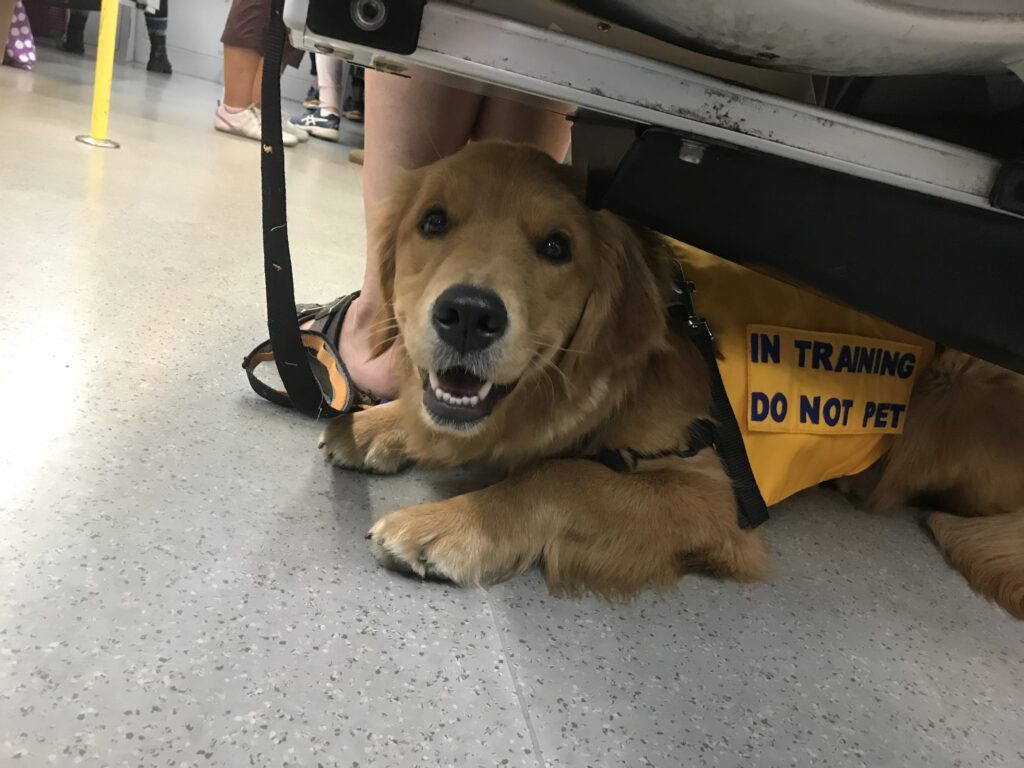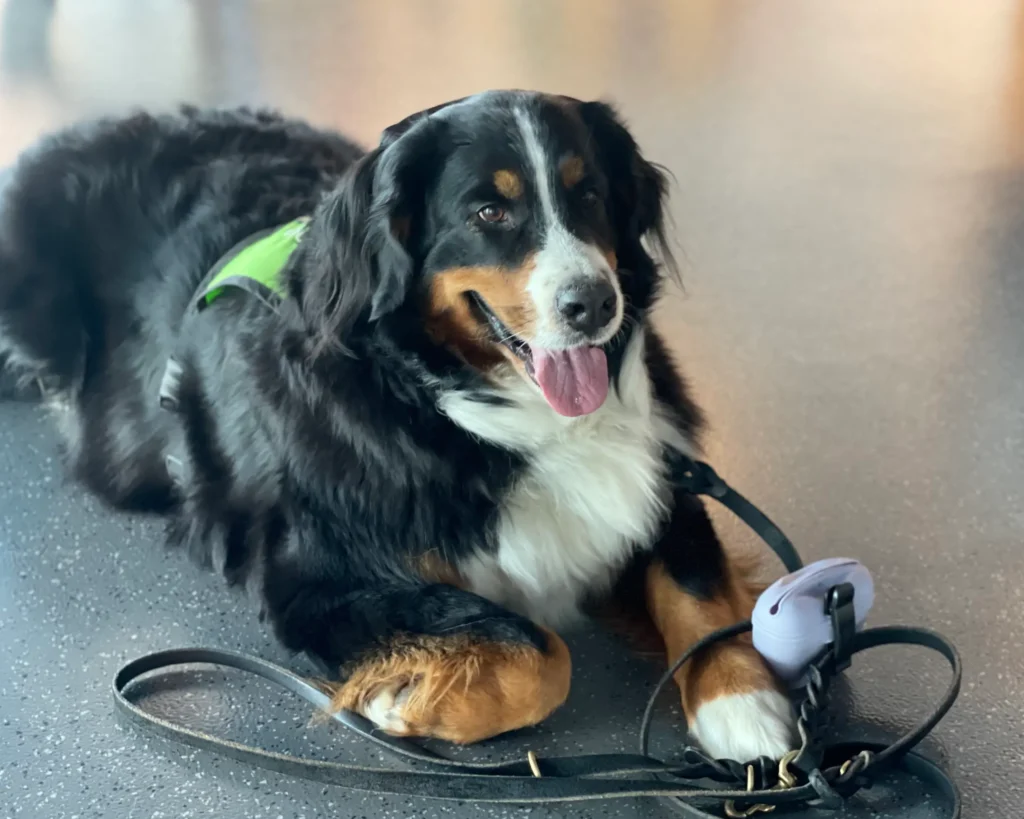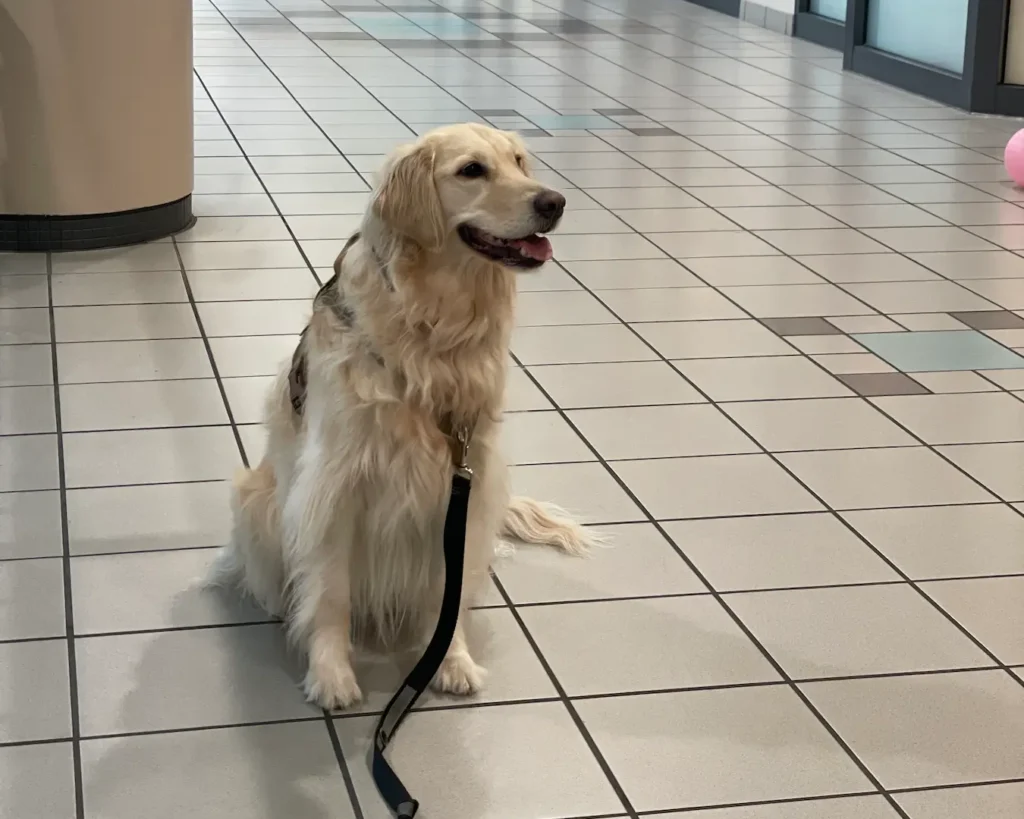

Assistance is a tail-wag away
Here To Help
We offer support for all levels of the service dog training process, from conception to certification.

Puppy Sourcing and Selection
Choosing the right dog is a crucial step. Never underestimate the power of genetics or the power of early puppyhood development. The genetics of the parents and the environment in which the puppies are born have a powerful effect on your dog’s potential for success as a service dog. We can help you pick the right dog with our free resources or you can get personal help from one of our experts.

Raising Puppies Well
As many people with c-PTSD can tell you, your childhood can make or break your mental and physical health! Assistance dogs must be stable in temperament, resilient, and emotionally and physically well in order to do their jobs. Our resources and trainers are available to help you raise an emotionally well dog from birth onward.

Service Dog Skills Training
Introduce your pup of any age to basic service dog skills such as scenting, retrieving, visit/comfort behaviours, self-harm interruptions, hearing alerts, or guiding. Our lessons use force-free techniques and employ social learning and cognitive psychology. Any dog can take part in this fun basic training, including pets who just want a job.

Public Safety Training
Prepare your adult (one year or older) dog for public safety certification with our advanced level training classes. Teach your dog to cope under high levels of distraction and challenging situations. Registrants must already be relaxed and happy in public places.

Full Assistance Dog Accreditation
When your dog knows how to assist you, has ability to be safe and relaxed in public, and the ability to assist you while safe and relaxed in public, they are ready for accreditation! Applicants must first pass the certification test in their province, if such a test exists (currently BC, Alberta and NS have provincial certification procedures in place) before they can be accredited by us.
Frequently Asked Questions
Can you certify my service dog?
Maybe! But if you are looking for a way around provincial certification standards, you will not find that here. Our standards are actually higher than the provincial certification test, and we require that clients in provinces with provincial certification schemes must FIRST pass the provincial exam before we accredit them.
If my dog still needs provincial certification, why get Heeling Assistants to certify the dog?
Currently, there is no need for someone from a province that certifies service dogs to be accredited through Heeling Assistants. Our goal is to become accredited by Assistance Dogs International, in which case your dog will gain international recognition as an assistance dog which makes traveling much easier!
Until then, we are holding our graduates to international standards, so gaining certification from us is a feather in your cap and a validation of your dog’s excellent training. Like a trophy!
How long does it take to get my dog certified?
Short answer? The lifetime of the dog. Service dog training never stops and dogs must recertify every couple of years to show that they have not developed unsafe habits or health conditions. However, if you are asking how long you would work with us before you could expect to achieve certification, the answer is a minimum of six months, assuming the dog is one year or older.
Who do you accept into your program?
Our puppy and skills programs are open to everyone. If you’re looking to have fun with your dog and train them to high standards while helping to support a worthy cause, then you are very welcome!
For our advanced programs including Public Safety and Assistance Dog Accreditation, we accept people who have the following:
1. One or more disabilities, physical, neurological or mental health related.
2. Proof of disability such as provincial Person With Disability status, a disability tax Credit from the CRA, or medical documentation of the disabling condition.
3. Successful applicants must be able to explain how their disability affects their life and how a trained assistance dog could benefit them.
4. Health – mental and physical – must be stable enough to provide consistent direction and training to the dog, and/or supporting adults must be available to assist with raising and training the dog.
5. An ability to develop good dog handling skills using force-free, science-based methods.
6. The financial and physical means to care for their dog.
Are you accredited by Assistance Dogs International?
Not yet! In order to become accredited, we must operate independently for a minimum of two years, graduate a certain number of dogs, and then apply for accreditation. Our ultimate goal is to achieve this accreditation.